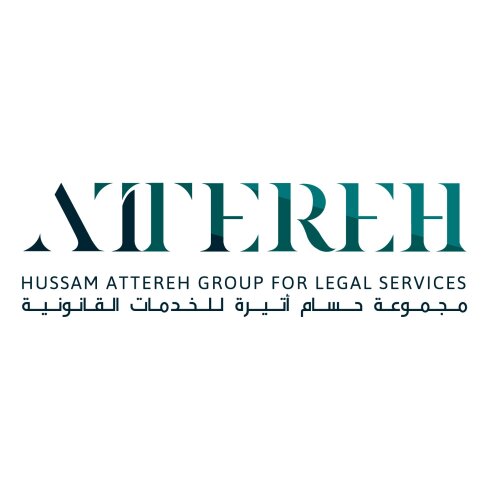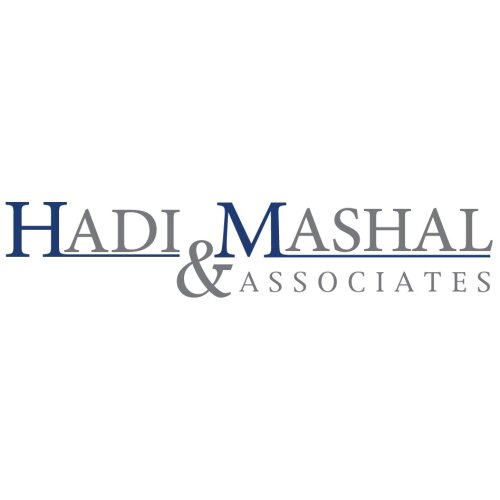Best Structured Finance Lawyers in Palestine
Share your needs with us, get contacted by law firms.
Free. Takes 2 min.
Or refine your search by selecting a city:
List of the best lawyers in Palestine
About Structured Finance Law in Palestine
Structured finance refers to advanced financial transactions and instruments that are designed to manage risk and provide tailored financing solutions for businesses and financial institutions. In Palestine, structured finance is gradually gaining traction as companies and investors explore alternative ways to access capital. Structured finance typically involves securitization of assets, syndicated loans, project finance, and other complex transactions that may go beyond traditional banking products. This area of law is crucial in supporting economic development, infrastructure projects, and large-scale investments across various sectors in Palestine.
Why You May Need a Lawyer
Laws governing structured finance transactions are highly technical and often involve multiple parties, regulatory compliance considerations, and sophisticated contractual arrangements. You may need a lawyer in situations such as:
- Structuring or participating in asset-backed securities or securitization deals
- Negotiating terms for syndicated loans or project finance transactions
- Ensuring compliance with Palestinian financial regulations and anti-money laundering standards
- Drafting or reviewing complex legal documentation, including trust arrangements, security agreements, and investor disclosures
- Resolving disputes arising from structured finance transactions or breaches of contract
- Assessing risk and designing mechanisms to protect your financial interests
- Advising on cross-border structured finance operations that may involve foreign parties and regulations
Legal expertise is vital to avoid costly mistakes, ensure deals comply with the relevant laws, and protect your rights and investment.
Local Laws Overview
Structured finance activities in Palestine operate under the framework established by several legal provisions and regulatory bodies. The main sources of law and regulation include Palestinian Capital Market Authority (PCMA) directives, the Palestinian Companies Law, banking regulations by the Palestine Monetary Authority (PMA), and anti-money laundering laws. Some key aspects relevant to structured finance in Palestine include:
- Asset Securitization: Although developed markets have clear frameworks, in Palestine, securitization may require careful structuring to comply with available regulations and investor protections.
- Collateral and Security Interests: The process for creating and enforcing security interests is subject to legal requirements specified in the Civil and Commercial Laws and guidelines from regulators.
- Banking Sector Regulations: All financial institutions must adhere to strict rules on lending, risk management, and reporting.
- Anti-Money Laundering: Compliance with anti-money laundering and counter-terrorism financing rules is mandatory for all structured finance transactions.
- International Involvement: Structured finance deals that involve foreign entities or cross-border assets must consider regional laws, treaties, and foreign exchange controls.
- Dispute Resolution: Private arbitration and domestic courts are both available forums for resolving structured finance disputes, subject to the terms of contract.
Staying current with changing regulations and obtaining tailored legal advice remain essential for successful structured finance transactions in Palestine.
Frequently Asked Questions
What is structured finance?
Structured finance is a branch of finance that deals with complex financial products and transactions, such as securitizing assets, project finance, and syndicated loans, designed to meet unique funding or risk management needs.
Is structured finance legal in Palestine?
Yes, structured finance transactions are legal if they comply with Palestinian regulations, especially those set by the PCMA, PMA, and relevant financial laws.
Which entities regulate structured finance in Palestine?
The Palestinian Capital Market Authority, Palestine Monetary Authority, and the Ministry of National Economy are primary regulators for structured finance activities.
Are there specific laws for securitization in Palestine?
There are no separate laws solely governing securitization, but the existing legal framework allows for such transactions provided all regulatory and disclosure requirements are met.
Can foreign investors participate in structured finance deals in Palestine?
Yes, but such transactions must comply with foreign investment laws, currency controls, and any bilateral agreements Palestine has entered into with other countries.
What risks are involved in structured finance?
Risks include credit risk, legal uncertainty, regulatory compliance, counterparty default, and underlying asset performance. A qualified lawyer can help identify and manage these risks.
How can I protect my interests in structured finance contracts?
Engage a lawyer to draft or review contracts, ensure compliance with local law, include comprehensive risk and mitigation provisions, and document all communications.
What is asset-backed securitization?
Asset-backed securitization is the process of pooling various financial assets, such as loans or receivables, and issuing securities backed by these assets.
Do I need a lawyer for every structured finance transaction?
Given the complexity and regulatory implications of these transactions, legal advice is highly recommended for all significant structured finance deals.
Where can disputes arising from structured finance transactions be resolved?
Disputes can be resolved in the Palestinian courts or through private arbitration, depending on the contractual agreement between the parties.
Additional Resources
Several bodies and organizations in Palestine provide information and assistance relating to structured finance:
- Palestinian Capital Market Authority (PCMA): Regulates capital market activities and issues guidelines on structured products.
- Palestine Monetary Authority (PMA): Oversees banking and financial institutions, including structured finance aspects.
- Ministry of National Economy: Provides oversight on foreign investment and corporate finance activity.
- Palestine Bar Association: Offers lists of licensed lawyers experienced in structured finance law.
- Palestinian Investment Promotion Agency: Supports local and foreign investors with information, permits, and assistance navigating regulations.
Each of these organizations offers resources and may provide further guidance or direct you to qualified legal professionals.
Next Steps
If you require legal assistance with a structured finance matter in Palestine, consider the following steps:
- Clearly define your objectives and gather all relevant documentation concerning your financial transaction or issue.
- Contact a lawyer with expertise in structured finance law, ideally someone familiar with both local and international transactions.
- Discuss your goals, risks, and any questions you have with your lawyer before proceeding.
- Work closely with your legal advisor to ensure all transaction steps are fully compliant with local laws and regulations.
- Monitor any changes in laws and regulations that could affect your transaction or future projects.
Seeking early legal advice is critical to securing your interests, managing risk, and ensuring the success of your structured finance activities in Palestine.
Lawzana helps you find the best lawyers and law firms in Palestine through a curated and pre-screened list of qualified legal professionals. Our platform offers rankings and detailed profiles of attorneys and law firms, allowing you to compare based on practice areas, including Structured Finance, experience, and client feedback.
Each profile includes a description of the firm's areas of practice, client reviews, team members and partners, year of establishment, spoken languages, office locations, contact information, social media presence, and any published articles or resources. Most firms on our platform speak English and are experienced in both local and international legal matters.
Get a quote from top-rated law firms in Palestine — quickly, securely, and without unnecessary hassle.
Disclaimer:
The information provided on this page is for general informational purposes only and does not constitute legal advice. While we strive to ensure the accuracy and relevance of the content, legal information may change over time, and interpretations of the law can vary. You should always consult with a qualified legal professional for advice specific to your situation.
We disclaim all liability for actions taken or not taken based on the content of this page. If you believe any information is incorrect or outdated, please contact us, and we will review and update it where appropriate.
Browse structured finance law firms by city in Palestine
Refine your search by selecting a city.












